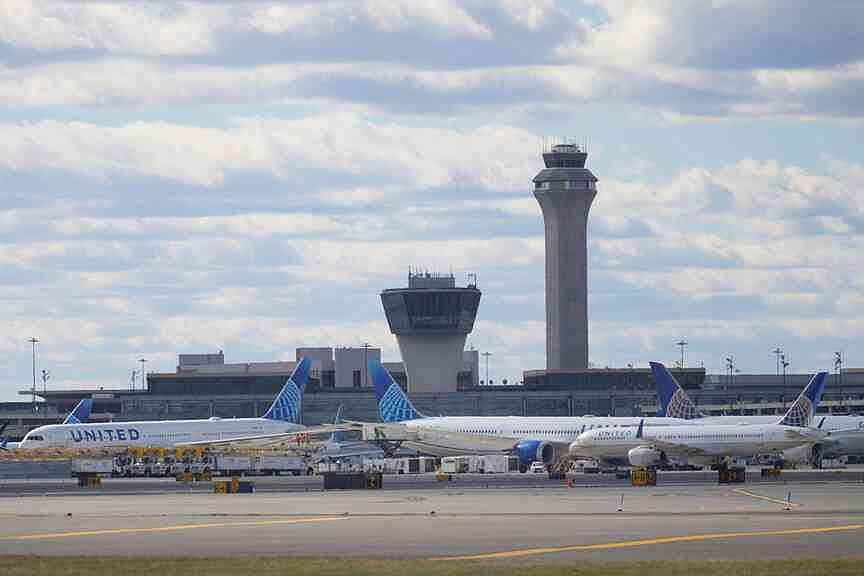Copyright Arkansas Online

U.S. airlines began canceling hundreds of flights Thursday as a result of the Federal Aviation Administration's order to reduce traffic at the country's busiest airports starting Friday because of the government shutdown. More than 790 planned Friday flights were cut from airline schedules, according to FlightAware, a website that tracks flight disruptions. That number, already four times higher than Thursday's daily total, was likely to keep climbing. The FAA order to cut flights at 40 of the busiest airports across the U.S. includes New York, Los Angeles and Chicago, according to a list distributed to the airlines and obtained by The Associated Press. But the impact will disrupt travel at many smaller airports too. Shane Carter, a spokesman at the Bill and Hillary Clinton National Airport/Adams Field, said flight reductions haven't had a noticeable effect on Little Rock. However, it's still early, he said. "There might be some delays here due to flight reductions at larger airports," Carter said. It's also possible that travelers connecting in one of the 40 airports affected by the FAA cuts and flight cancellations from Little Rock could face challenges. Major hubs where Little Rock flights go include Dallas-Fort Worth International Airport, Hartsfield-Jackson Atlanta International Airport and Charlotte Douglas International Airport in Charlotte, N.C. Carter recommends that those traveling by air stay updated on their flight status and monitor any connections to see if there are delays or cancellations. This can be done online or on airline apps. Little Rock airport travelers were concerned, including Dylan Rayburn, an interior designer who travels often for work. "Generally, there's an uneasy feeling," said Rayburn, who arrived in Little Rock from Houston. "(There are) definitely a lot of delays or changes or canceled flights. But again, that can be due to weather and other things too, but this will definitely cause more delays I'm sure." The Northwest National Arkansas Airport had not seen any effects from delays and cancellations on passenger travel as of Thursday, said Public Affairs Manager Olivia Tyler. Tyler said the airport is closely monitoring the situation, but has yet to receive any communication from carriers or the FAA on how the reduction in flights could affect the airport. Staffing issues at the airport have been minimal so far through the shutdown. The airport's control tower is privately operated and not affected by the shutdown, while Tyler said Transportation Security Administration staff have been "phenomenal" at preventing staffing issues for security checkpoints. BEST LAID PLANS The FAA seeks to reduce service by 10% across "high-volume" markets to maintain travel safety as air traffic controllers exhibit signs of strain during the shutdown. Airlines will phase in the 10% reduction in their flight schedules at airports across more than two dozen states. Just hours before the reductions went into place, airlines were scrambling to figure out where to cut and some travelers began changing or canceling itineraries preemptively. Travelers with plans for the weekend and beyond waited nervously to see if their flights would take off as scheduled. "Oh, no," said 31-year-old Talia Dunyak, who is scheduled to fly next week from Vienna to Philadelphia, which is one of the airports targeted by the FAA for flight cutbacks. "I'm really hoping my flights don't get canceled." Dunyak plans to meet her newborn niece, have some business meetings and celebrate Thanksgiving with family during a carefully planned trip. Now she's wondering what will happen. "It's such a busy time to travel and there's not so many direct flights," said Dunyak, who works in public relations. "I might end up in some nightmare." The affected airports included busy connecting hubs and those in popular tourist destinations, such as Atlanta, Denver, Orlando, Miami and San Francisco. In some of the biggest cities -- such as Dallas, Houston and Chicago -- multiple airports will be affected. STARTING OFF SLOW The FAA said in its official order published Thursday evening that the reductions will start at 4% on Friday and ramp up to 10% by Nov. 14. They are to be in effect between 6 a.m. to 10 p.m. local time and impact all commercial airlines. "With continued delays and unpredictable staffing shortages, which are driving fatigue, risk is further increasing, and the FAA is concerned with the system's ability to maintain the current volume of operations," the order reads. Delta Air Lines said it planned to cancel roughly 170 flights Friday. By late Thursday afternoon, United Airlines had called off 145 flights and American Airlines had canceled 32 for Friday, according to aviation analytics firm Cirium. Some airlines planned to focus on slashing routes to and from small and medium-size cities. "This is going to have a noticeable impact across the U.S. air transportation system," industry analyst Henry Harteveldt said. The flight reductions just weeks before the busy holiday season prompted some travelers to change their plans or to look at other options. It was enough to cause Laura Adams to ditch plans of flying altogether. Adams lives in Vero Beach, Fla., and typically flies with her husband for Thanksgiving with his family in Fair Hope, Ala. They'll now make a 10-hour drive instead. "We really felt quite uneasy and just didn't want to risk having a flight cancellation or a delay or getting stuck," said Adams. "It just seems really risky." Though she's not a fan of long car trips, she's resigned herself to it, even if the shutdown ends and flights are restored. "Just kind of weighing the pros and cons, it just seems like a better option," she said. AIRLINES SCRAMBLING The FAA is imposing the reductions to relieve pressure on air traffic controllers who are working without pay during the shutdown, which began Oct. 1, and have been increasingly taking sick days. Most controllers work mandatory overtime six days a week, leaving little time for side jobs to help cover bills unless they call out. Airlines said they would try to minimize impact on customers, some of whom will see weekend travel plans disrupted with little notice. United, Delta and American were among carriers that said they would offer refunds to passengers who opt not to fly, even if they purchased nonrefundable tickets. The head of Frontier Airlines recommended that travelers buy backup tickets with another airline to avoid being stranded. The cuts also could disrupt package deliveries because two airports with major distribution centers are on the list -- FedEx operates at the airport in Memphis and UPS in Louisville, Ky., the site of this week's deadly cargo plane crash. The cuts could affect as many as 1,800 flights, or upward of 268,000 passengers, per day, according to an estimate from Cirium. Airlines are used to dealing with canceling thousands of flights on short notice during severe weather, but the difference now is that these cuts during the shutdown will last indefinitely until safety data improves. STORMY SKIES The shutdown is putting unnecessary strain on the system and damaging confidence in the U.S. air travel experience, said U.S. Travel Association President and CEO Geoff Freeman. Kelly Matthews, who lives in Flat Rock, Mich., and frequently flies for work, said she has canceled most of her upcoming trips and understands why federal airport employees have stopped showing up. "You can't expect people to go in to work when they're not getting a paycheck for the continuation of over a month now," she said. "I mean it's not a matter of them not wanting to do the job -- but you can't afford to pay for gas, your day care and everything else." The past weekend brought some of the worst staffing issues since the start of the shutdown. From Friday to Sunday evening, at least 39 air traffic control facilities reported potential staffing limits, according to an AP analysis of operations plans shared through the Air Traffic Control System Command Center system. The figure, which is likely an undercount, was well above the average for weekends before the shutdown. Information for this article was contributed by Wyatte Grantham-Philips, Safiyah Riddle and Christopher L. Keller of The Associated Press and by Dylan Sherman and Amir Mahmoud of the Arkansas Democrat-Gazette.



